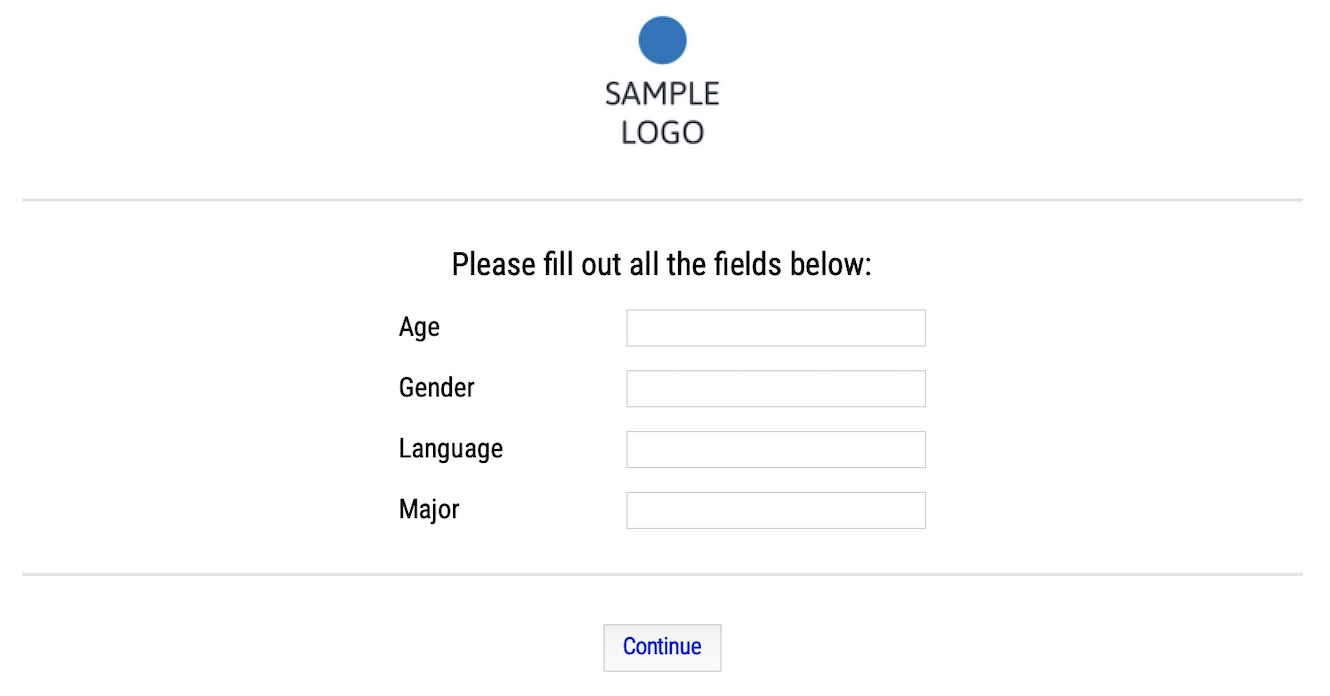PyExp — Linguistic Experiments using tkinter and Python 3
https://github.com/mkthalmann/PyExp
The following description is taken directly from the README of the associated Github page. This is one of my ongoing side projects: an experiment script with Python 3 using tkinter. The scope of this effort is fairly limited for now:
- have a fairly straight-forward structure with which to carry out linguistic experiments offline (in a lab setting with multiple computers, for example)
- to achieve this, I made the choice to limit aesthetic flexibility in favor of a broad(-ish) coverage of important paradigms and minimal specification effort before the experiment is ready to go
- include these paradigms (for now):
- linguistic judgments (Likert-style) of text and audio stimuli — the latter of which can either be present locally or streamed from online sources
- recording of reaction times (done automatically for all experiment types)
- forced choice (either dynamic or static) between images or text options
- self-paced-reading (either cumulative or static)
- ability to choose between the various paradigms and to specify the way the experiment is to be run (e.g., with or without a training portion) and what kind of data is to be collected (e.g., different meta-data fields)
What It Looks Like

Getting Started
To run the experiment, simply adjust the settings in config.yaml (or any other yaml file of your choosing with the relevant settings) and add your item files to the mix before running experiment.py. The experiment should then run as specified (barring any code blunders on my part). Alternatively, if you just want to have a look at the way everything works and looks, you can simply run it as-is; a wide variety of exemplary item lists and items is provided (and used for testing purposes).
my_exp = Experiment("config.yaml")
my_exp.start_experiment()Details
In order to display the experiment, tkinter is used (unfortunately, so far, I have only tested this script on Mac OS, but I do hope that this should not be a problem), internal data handling and exporting is accomplished with pandas, while anything relating to audio files relies on pygame.
Here are the first few lines of the results for a Forced Choice experiment, where the finished-column indicates whether the entire set of items was completed or not:
| id | date | start_time | tester | age | gender | language | major | sub_exp | item | cond | judgment | reaction_time | finished | feedback | duration |
|---|---|---|---|---|---|---|---|---|---|---|---|---|---|---|---|
| uuvvomdbmam9fzc | 04/03/2020 | 11:46:54 | TEST | 99 | n/a | python | none | 1 | 1 | a | opt1 | 1.48082 | F | cool exp | 10.2 |
| uuvvomdbmam9fzc | 04/03/2020 | 11:46:54 | TEST | 99 | n/a | python | none | 1 | 3 | b | reject | 0.9502 | F | cool exp | 10.2 |
| uuvvomdbmam9fzc | 04/03/2020 | 11:46:54 | TEST | 99 | n/a | python | none | 1 | 2 | a | opt2 | 0.88746 | F | cool exp | 10.2 |
| uuvvomdbmam9fzc | 04/03/2020 | 11:46:54 | TEST | 99 | n/a | python | none | 1 | 4 | b | opt1 | 1.14362 | F | cool exp | 10.2 |
As you can see, the results file is fairly dense and errs on the side of including too much information. I find this makes things easier in case unexpected circumstances occur or testing is done under non-ideal conditions (long stretch of time to test all participants; lots of different experimenters doing the testing, what have you).